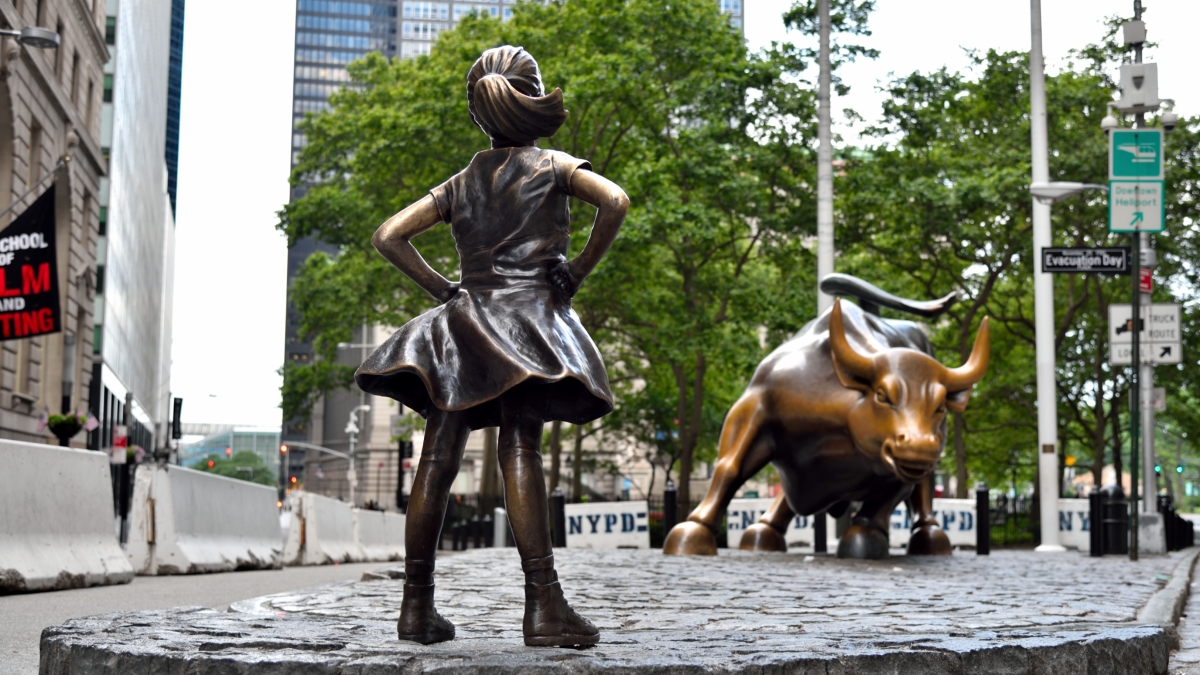It started with the creation of the Sustainable and Impact Finance Initiative, a student organization that set out to improve corporations’ adherence to what is referred to as environmental, social and governance factors, or ESG. They do this through investing in companies that demonstrate a commitment to sustainability and equity, and avoid funding companies who do not. They also directly engage with companies as a collaborative, concerned shareholder. The organization has been integral in helping ASU to inform its long-term investments, bolstered by the guidance and support of ASU Enterprise Partners and the ASU Foundation.
Launched in fall 2020, the Sustainable and Impact Finance Initiative’s rapid growth and success as a student organization was validated with ASU’s first-place win in the SIILK Corporate Engagement Competition hosted by the Intentional Endowments Network. This competition challenged teams from four universities to produce a written report that established a publicly traded company to invest in, as well as a proposed shareholder engagement strategy.
The teams were asked to devise an investment strategy that would advance the Intentional Endowments Network's social equity and climate goals, which put an emphasis on addressing inequality and its role in the climate crisis. In alignment with these goals, ASU’s team developed the thesis that a company that prioritizes diversity and racial justice will yield the best outcomes in terms of financial gain, as well as advancement for the Intentional Endowments Network's goals and ESG factors. This theory was informed by reports that show that racial diversity is positively correlated with profitability, and companies with above average diversity experience higher innovation revenues.
“If a company is diverse in its employee base — by gender, ethnicity, socioeconomic background, whatever it may be — you have a wider variety of unique experiences and expertise to help shape more dynamic, creative solutions,” said Jacob Ivy, a member of the winning team and master’s degree student at the College of Global Futures’ School of Sustainability.
Ivy also noted that companies that are able to adapt quickly and accordingly to new environmental regulations and policies have a major leg up on their competition. Employing individuals who understand the full range of implications that come with climate change isn’t just a moral incentive, it’s a financial one. So when you consider that women, people of color and those of lower socioeconomic standing are disproportionately affected by climate change, it’s easy to see why a company would benefit from diversifying its pool of decision-makers.
In order to home in on their pick of which company would best embody this commitment to diversity, the ASU team outlined a set of parameters that needed to be met. The company would have to perform in line with the broader market and demonstrate successful long-term financial returns. They would not only need to be dedicated to advancing racial justice, but also receptive to shareholder engagement. Ultimately, the team chose BlackRock, Inc., a multinational investment management corporation dedicated to corporate sustainability and ESG practices.
“Our engagement strategy with BlackRock was to build a coalition of schools to increase our leverage in order to push BlackRock to build stronger diversity and inclusion reporting and goals within their own organization, as well as their entire investment portfolio,” Ivy explained.
Ryan Taylor, project coordinator at ASU Enterprise Partners who assisted the winning team, believed the team’s strategic thinking that led them to select BlackRock was a key factor in their win. “BlackRock is a key partner of the ASU endowment, and as the world’s largest shareholder, they are poised to shape how the entire market approaches ESG issues,” he said. “So it is super impactful how the ASU team made a real plan to engage BlackRock, with a coalition from other universities, that our student organization (SIFI) has already started to carry out.”
ASU is well known for the mission outlined in its charter, of measuring the success of the university not by whom it excludes, but rather by whom it includes and how they succeed. This theme continues to be the driving force behind the winning team and the Sustainable and Impact Finance Initiative’s strategy as an organization.
On behalf of ASU Enterprise Partners, Chief Investment Officer Jeff Mindlin said, “We’ve been on a journey to better align our investment strategy with the mission of the university. To us, this has been centered around climate as well as justice, equity, diversity and inclusion. As a shareholder, our voice is an important lever to effect the change we want to see. Personally, I feel that the impact of these efforts has been magnified as we’ve worked with our very own ASU students to advance these initiatives.”
More Environment and sustainability

2 ASU faculty elected as AAAS Fellows
Two outstanding Arizona State University faculty spanning the physical sciences, psychological sciences and science policy have been named Fellows of the American Association for the Advancement of…

Homes for songbirds: Protecting Lucy’s warblers in the urban desert
Each spring, tiny Lucy’s warblers, with their soft gray plumage and rusty crown, return to the Arizona desert, flitting through the mesquite branches in search of safe places to nest.But as urban…

Public education project brings new water recycling process to life
A new virtual reality project developed by an interdisciplinary team at Arizona State University has earned the 2025 WateReuse Award for Excellence in Outreach and Education. The national …



